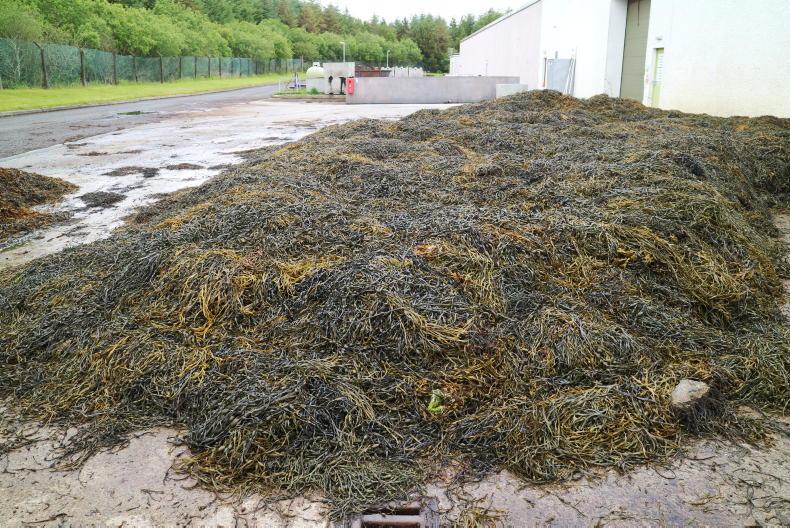Two projects on the island of Ireland are making progress on studies to measure the ability of seaweed to reduce livestock methane emissions.
Seaweed supplements could significantly reduce emissions according to scientists at the Institute for Global Food Security (IGFS) at Queen’s University Belfast and Teagasc.
IGFS scientists are about to begin trials on UK farms by using seaweed sourced from the Irish and the North Sea as a feed supplement for cattle.
A second €2m project led by Teagasc is monitoring the effects of seaweed in the diet of pasture-based livestock in Ireland.
Potential
Research in Australia and the US has generated up to 80% reductions in methane emissions from cattle given a red seaweed variety.
Seaweed indigenous to the UK and Ireland tends to be brown or green and does not contain bromoform, a component found in red seaweed varieties which is known to be damaging to the ozone layer.
Irish scientists hope to use this advantage to create a more sustainable seaweed feed supplement.
UK and Irish seaweeds are also rich in active compounds called phlorotannins, found in red wine and berries, which are anti-bacterial and improve immunity. IGFS scientists say they could have additional health benefits for livestock.
Projects
A three-year project about to begin includes a partnership between the IGFS and UK supermarket Morrisons. Morrisons’s network of British beef farmers will facilitate farm trials.
The project also includes the Agrifood and Biosciences Institute (AFBI), in Northern Ireland, as a partner.
A second €2m project led by Teagasc and supported by IGFS and AFBI will monitor the effects of seaweed in the diet of pasture-based livestock.
Seaweed will be added to grass-based silage on farm trials involving dairy cows in NI from early 2022.
As well as assessing methane emissions of the beef and dairy cattle, these projects will assess the nutritional value of a variety of homegrown seaweeds, their effects on animal productivity and meat quality.
IGFS lead professor Sharon Huws said she expects the combined research to evidence a reduction in GHG emissions of at least 30%.
“Using seaweed is a natural, sustainable way of reducing emissions and has great potential to be scaled up,” she said.






 This is a subscriber-only article
This is a subscriber-only article










SHARING OPTIONS: